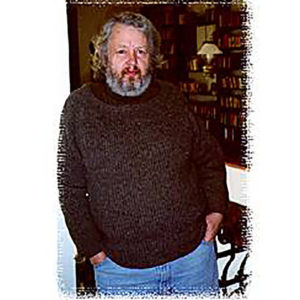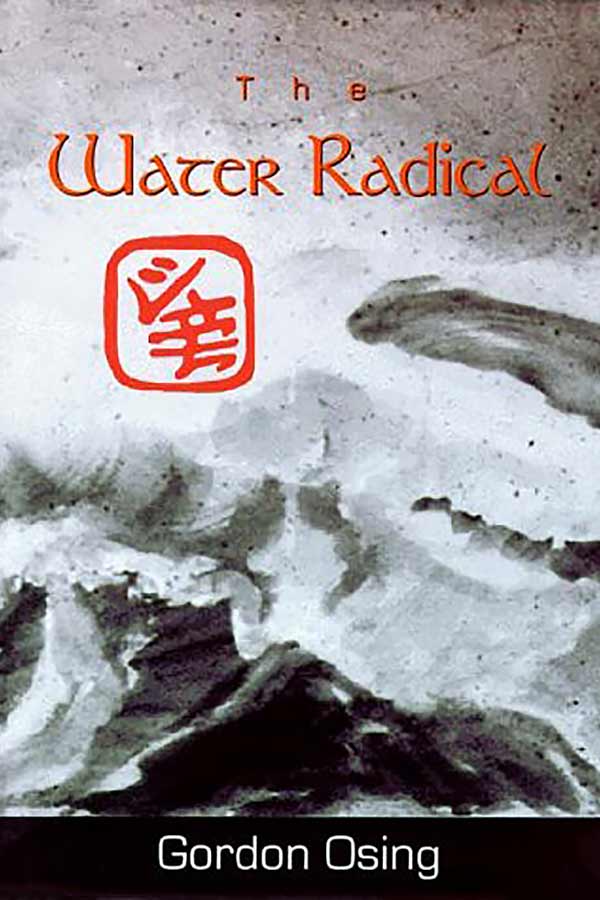
Gordon Osing grew up in Central Illinois and Western Missouri, where he attended pre-theological high school and junior college. He taught elementary schools in suburban St. Louis and Independence, Missouri and high schools in Chicago and rural Alma, Missouri for ten years before heading back to campus at the University of Arkansas, for an MFA in Poetry in 1973.
Attending the American Poets Series at the Jewish Community Center in Kansas City in the late Sixties and early Seventies inspired him to invest himself in poetry. Writers such as David Wagoner, Karl Jay Shapiro, Nancy Willard, Gwendolyn Brooks, Howard Nemerov, and Richard Wilbur showed a way to make private preoccupations and experiences into a sensibility that could, in turn, invent artifacts in the traditions of belles lettres. Poetry became a way of keeping to private matters by making them into poetic artifacts. In Howard Nemerov’s phrase, the “fictive self” took over the quest for self-expression.
Osing came to the University of Memphis (then Memphis State University) in 1973 and founded the River City Writers Series in 1976. The River City Series, now in its twenty-first season and under student management, has brought ninety writers of poetry, fiction and belletristic nonfiction to the University, and is the center-piece of the Creative Writing program of the English Department.
In 1982, he won the University’s Walter R. Smith Distinguished Book Award and published his first full-length collection From the Boundary Waters. He had edited The Good People of Gomorrah, a Memphis miscellany, for St. Luke’s Press in 1979. St. Luke’s also published Osing’s second full length collection, with prose commentary to meld the poems together, A Town Down-river, in 1985.
In 1986, Osing accepted the invitation of the University to be the first exchange professor with Central China Normal University, during which time he created, with graduate student Min Xiaohong and Professor Huang Hai-peng, a collection of fifty ci poems by China’s famous Su Shi (Su Dong-p’o). The Henan Provincial Press, in Zhengzhou, published that collection in 1990.
The success of that year led to a Senior Fulbright lectureship in American Studies at the (British) Hong Kong University in 1989, where further partnership with Huang and Min produced a second book of Song Dynasty ci poems, this time by the remarkable female author Li Qing-zhao. In 1992, the Henan Press published also this volume, Forever Tonight at My Window. Osing’s Fulbright was extended a year so he could help the faculties there establish an American Studies Program.
At Hong Kong University, Osing worked with poet-novelist Leung Ping- kwan on a collection of poems and an interview focussed on Hong Kong as an artistic venue after the June 4 massacre in Beijing. Essayist Akbar Abbas joined them to produce a volume on Hong Kong as a post-modern metropolis, City at the End of Time, published by the HKU Comparative Literature Department and Twilight Books of Hong Kong in 1992.
Back at the University of Memphis, in 1995, Osing joined with Chinese scholar Dr. De-an Wu-Swihart, to produce a collection of the poems by China’s first contemporary feminist author Shu Ting, published by The Chinese Literature Press, in Beijing, under their logo Panda Books.
His new chapbook, Crossing Against the Sun (Poetry New York, 1999, 17 pp.) presents his return from Asia in the summer of 1990, and the full length collection, The Water Radical, published by Iris Press, presents poems from his notebooks during three years in China and Southeast Asia. in these poems, Osing looks at “the Asia of ourselves.” It is not so much that he sees a China no one else has seen, but that he has looked back to Euro-America from perspectives inspired by China experience. Perhaps the continuousness of Chinese cultural moments offers commentary on our discontinuities.
Osing and his wife now live lakeside in the woods in northern Mississippi in a cypress house of their own design, teaching still at the University of Memphis, but writing close to full time.

